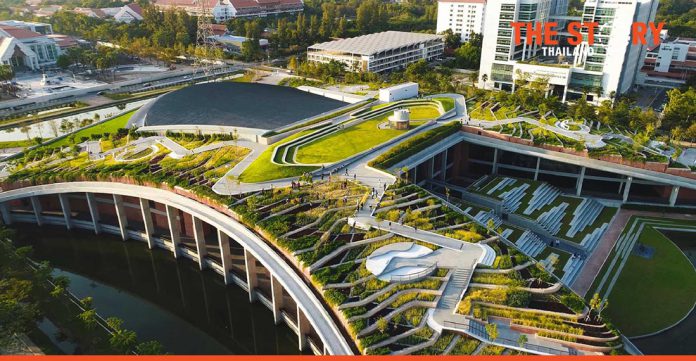Two of Thailand’s leading organizations at the cutting edge of research for the future have established a laboratory at Rangsit, in Bangkok, to pursue innovative developments to help Thailand meet the United Nations’ Sustainable Development Goals.
The move comes amid world concern for achievement of the 17 development goals set by the UN in 2015, when it called for urgent action to achieve world peace and prosperity by 2030. Among the most challenging of the goals are those related to climate change.
-AIS Academy for Thais gathers strength and purpose
-AIS advises Thais to prepare for “Life After the Crisis”
In the face of intensifying climatic problems, Thammasat University and Thailand’s technology and digital services leader, AIS, have joined forces to set up a Sustainable Development Goals (SDG) Laboratory at Puey Park for the People, in the university’s compound at Rangsit. The aim is to drive action-oriented sustainable development. People with ideas, interests and determination are invited to address environmental impacts, with access to resources, facilities and opportunities to develop prototypes and generate sustainable and tangible benefits for society.
The laboratory showcases sustainability. It features co-working space, event space, ‘maker’ spaces and meeting rooms. But its most outstanding feature is its energy-saving rooftop garden.
The Vice Rector for Sustainability and Administration at Thammasat’s Rangsit Center, Asst. Professor Prinya Thaewanarumitkul, says the rooftop garden reduces the indoor temperature of the building by 30 per cent. This can be translated into a 30-per-cent energy cut for air conditioning and a 30-per-cent reduction in carbon-dioxide emissions.
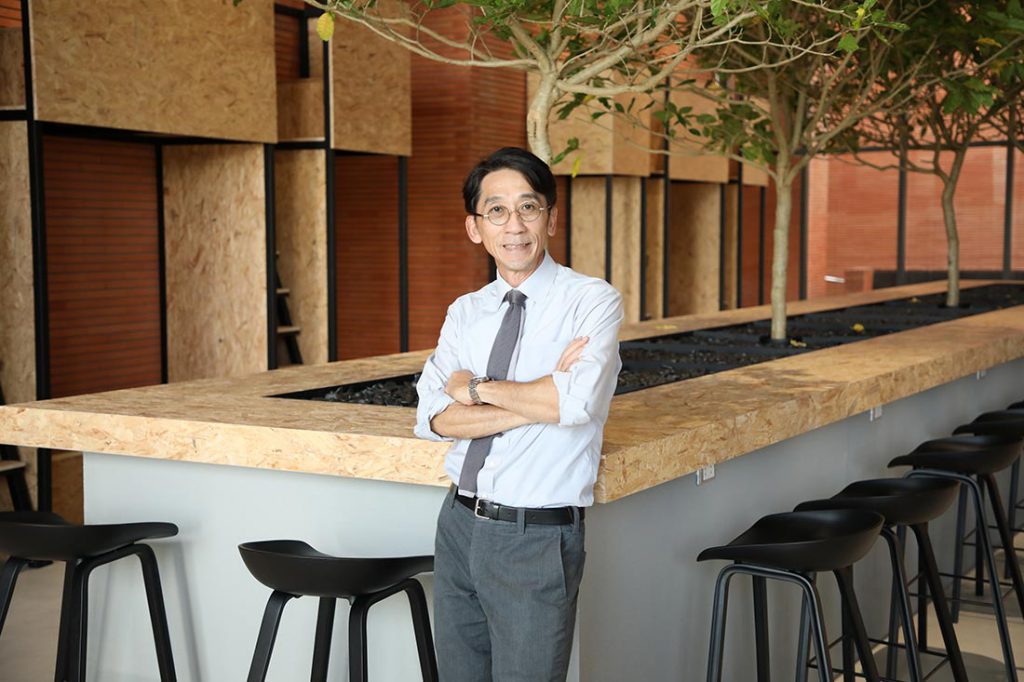
Because the maintenance of a rooftop garden involves the cost of watering and lawn trimming, the university has decided to ensure that the garden provides crops. The vegetables now growing on the roof of the SDG Lab, not only help to reduce carbon-dioxide emissions, but also provide to food that is safe for human consumption.
The rooftop garden is being developed as a ‘smart-farm’ prototype, with AIS providing the following tech support:
- An Internet of Things (IoT) sensor system to monitor key indicators in the garden;
- An IoT controller system that manages water valves over the internet;
- 5G technology and a cloud-based smart-farm system that stores and analyzes data; and
- ‘iFARM’ – a smart-farm platform that enables farmers to set sensing devices in their farms.
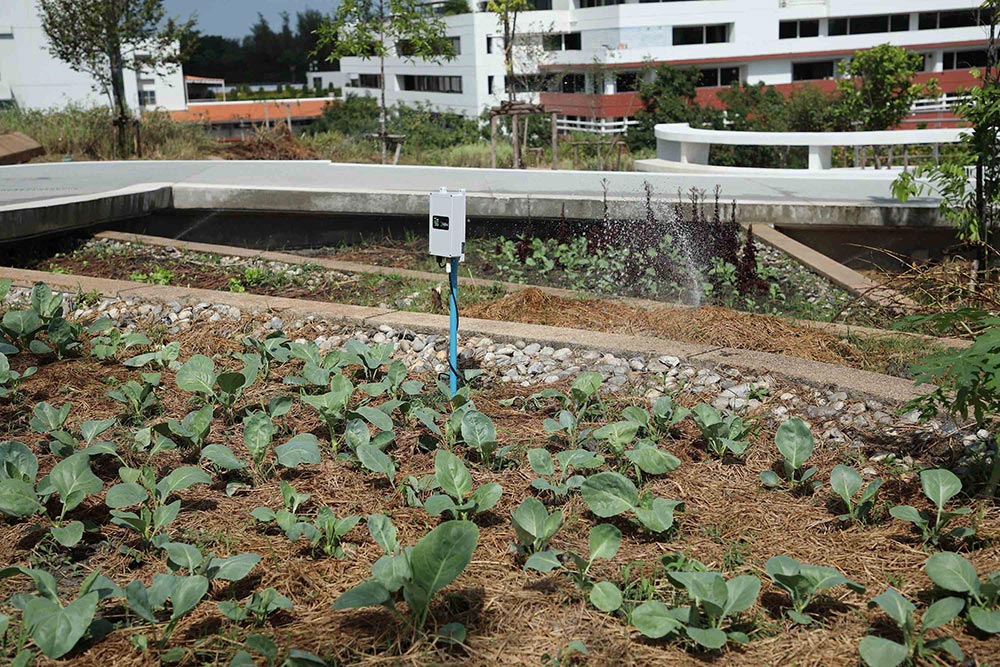
The platform includes:
- A moisture-monitoring system and wireless water-valve controls. This technology, now installed in the SDG Lab’s rooftop garden, promises to make big vegetable farms easier to manage. Water is managed and used with greater efficiency as sensors accurately inform farmers of moisture levels in the soil. If there is sufficient moisture for the crops, there is no need to water them. If the soil becomes too dry, the system automatically waters the plants.
- An air-quality measuring station that monitors atmospheric conditions and checks levels of CO2 and PM2.5 in the air of the rooftop garden. This data is then analyzed to engage connected devices.
- This model is designed to simulate smart-farm operations on a larger scale.
AIS has deployed the smart-farm system in the hope of helping Thailand’s farmers to upgrade their operations. At present, they work in their paddy fields, fruit orchards or plantations on the basis of long practical experience. With the smart-farm system, they will be able to gather more data about their farms and crops and learn to efficiently control their productivity. For example, their water usage will be more efficient as sensors monitor moisture levels and soil temperatures for precise farm planning and management.
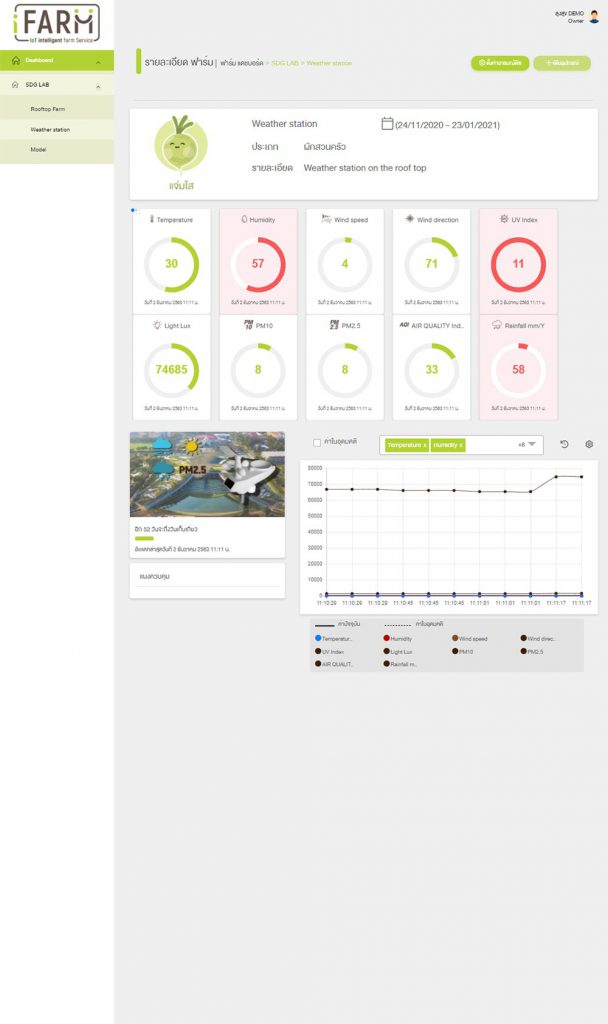
In essence, the smart-farm system connects devices, including the farm sensors, to the internet. Data is then transmitted to the main platform for commands and management. Therefore, farmers and other users of this system can work from anywhere.
It will help farmers to efficiently scale up food production. With the help of automation technology, data and efficient control systems, farmers will be able to deliver better output in terms of both quantity and quality. In fact, even non-farmers will be able to grow plants for household consumption with greater convenience when they use the smart-farm system. As a result, natural-resource usage will become much more efficient, particularly in the use of water, because smart farms will use water only when necessary and appropriate. Smart farms – using sensors to monitor and respond to plants’ needs – will thus contribute to the mitigation of climate change by curbing water usage and discouraging the unnecessary use of fertilizers.
In setting its Sustainable Development Goals, the United Nations predicted that the world would be able to cope with climate change if global temperatures rose by no more than two degrees Celsius before 2050. But Thammasat’s Prinya points to increasing world alarm over the past two years with the discovery that a hike of just one-degree has been causing gravely adverse impacts.
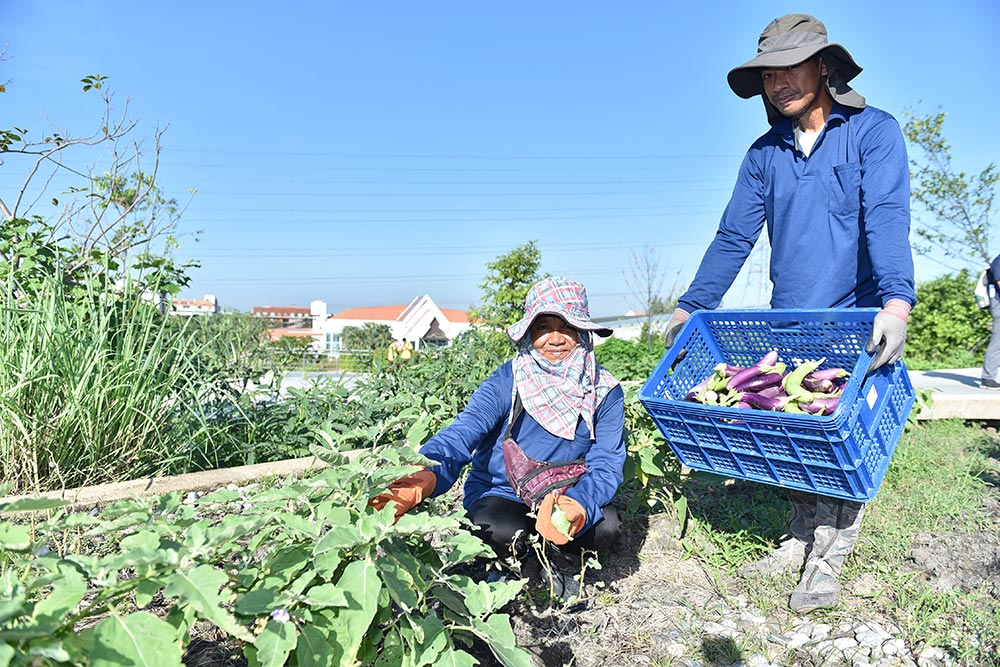
“Now, the UN has suggested that temperatures must not rise by more than 1.5 degrees Celsius. It has become convinced that if the two-degrees threshold is reached, it will be too late to undo the damage. If we do not make significant changes now, the temperature is sure to rise by two degrees Celsius within the next 10 years. Because we are aware that action must be taken now, we have created our rooftop garden, through collaboration with AIS. We have developed it as a prototype smart farm,” he says.
It is hoped that these tangible steps will inspire like-minded innovators to immediately make better changes.
AIS Pushes Sustainable Development
Collaboration with Thammasat University underlines the status of AIS as a leader of technology and digital services that is driving sustainable economic, social and environmental development in Thailand.
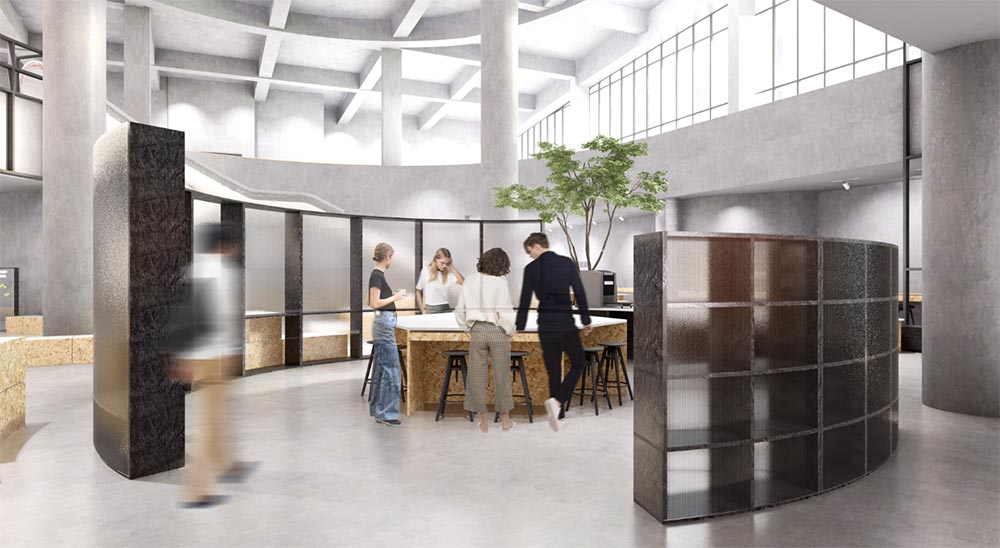
The SDG Lab by Thammasat and AIS, which is Asia’s first laboratory devoted to sustainability, strives to be much more than just a co-working space. It positions itself as a place in which innovators from around the world can take action to develop and test prototypes to address environmental issues.
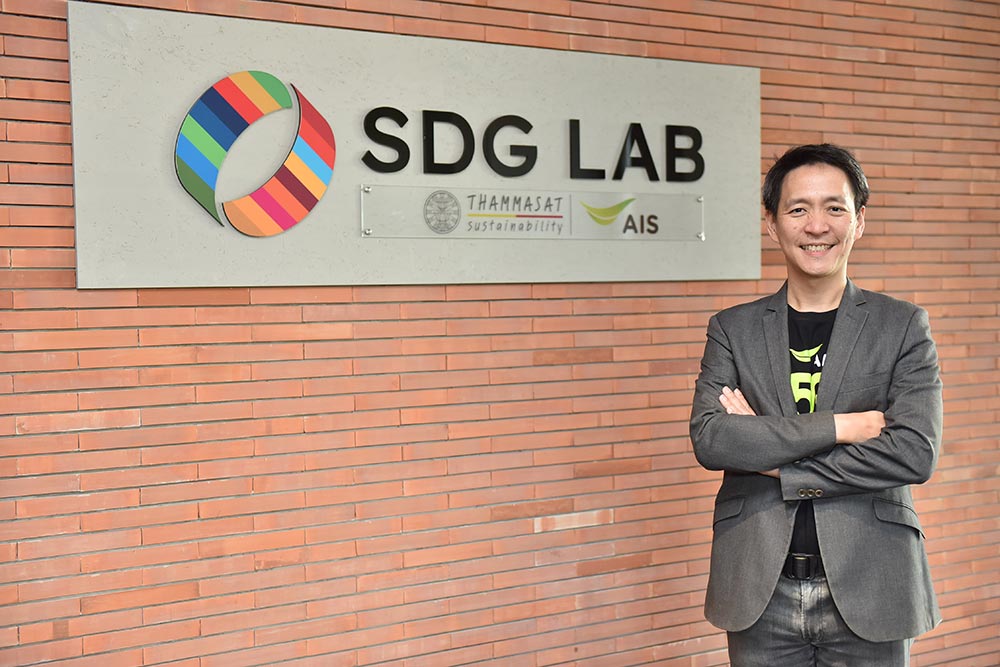
AIS’s Chief Consumer Business Officer, Pratthana Leelapanang, says that in supporting establishment of the SDG Lab with a 5G network, IoT devices and automation equipment, AIS is being driven by five goals:
- Climate sustainability, because AIS wants to reduce global warming and improve sustainability so as to prevent humanity from facing a future hostile climate;
- 5G-enabled urban development, because this will increase sustainability. Within the next few months, autonomously driven electric vehicles will be in service at Thammasat’s Rangsit Campus with the help of 5G technology;
- Recycling materials, with the help of technology;
- Promoting smart farming at the SDG Lab, which is the only place in Asia with a rooftop garden for learning and sustainability; and
- Human development, which is the most important goal. The SDG Lab is designed as an inspiring and educational space that aims to engage university technicians and members of the public.
“People usually see AIS as a network provider, but aside from that role, we have also been contributing to sustainability. We are pursuing these five goals, all at the same time. Our medium- and long-term plans cover five to 10 years. I think in the next five years, public awareness of AIS’s contributions to sustainability will increase noticeably,” he says.
Innovative Prototypes
Prinya says Thammasat university expects the SDG Lab to drive people into action on a wide scale. It will not focus solely on its rooftop garden, but seeks to promote the development of small and innovative devices that can be used in the household – similar to smartphones.
He says, for example, Thailand has a big problem with food waste; about 60 per cent of the country’s total waste is left-over food. He points out that Thailand is a country of abundant food supplies, and tons of it is discarded. Worse still, left-over food causes methane gas, which is 30-per-cent more potent than carbon dioxide as a greenhouse gas, causing climate change. As well, 80 per cent of Thailand’s waste is disposed of in open spaces.
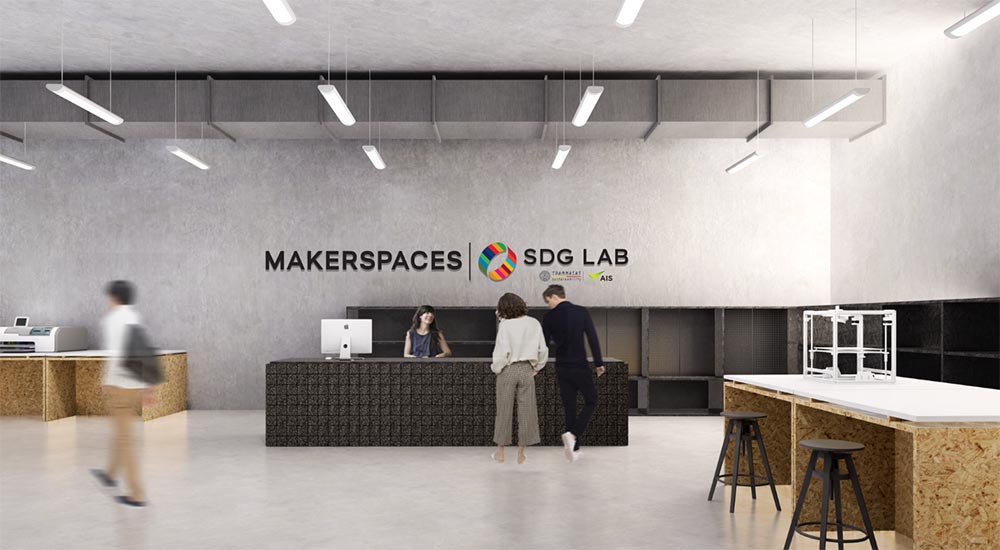
One proper way of disposing of left-over food is to put it into a device that can turn it into fertilizer for plants. At present, such devices are available, but are expensive. If innovators can develop such devices at the price of, say, an electric fan, every family would be able to buy one. This would have a good impact at a national level.
Another example is waste heat from air conditioners. If the heat is turned into energy, air-conditioning compressors would no longer emit heat into the environment, but generate energy for use on a ‘circular design’ principle.
SDG Lab run by Thammasat University, sponsored by AIS
While it is operated by Thammasat University, the SDG Lab has AIS as a major sponsor in its mission to make long-lasting impacts. AIS has a research and development team that has been working closely with various communities and educational institutes in an effort to integrate technologies into educational development.

Pratthana says AIS has implemented what it calls AIAP, or AIS IoT Alliance Program, under which a platform has been created for interested people to use for a variety of functional purposes. Membership of AIAP is free, and some people have been using the platform for weather studies and agriculture.
At present, IoT technology is being used via AIAP on five or six smart farms in the South of the country and one in the North. AIS software and hardware are poised to benefit many more fruit orchards in the future, given that Thailand is still economically dependent on agriculture, he says.
Prinya says Thammasat University would have been unable to set up the SDG Lab on its own. He appreciates the knowledge, expertise, tools and research shared by AIS. In his view, the company’s collaboration with Thammasat University will change not just his Rangsit campus. but also Thailand, and possibly other countries, for the better.
He says several foreign envoys to Thailand have already visited the SDG Lab.
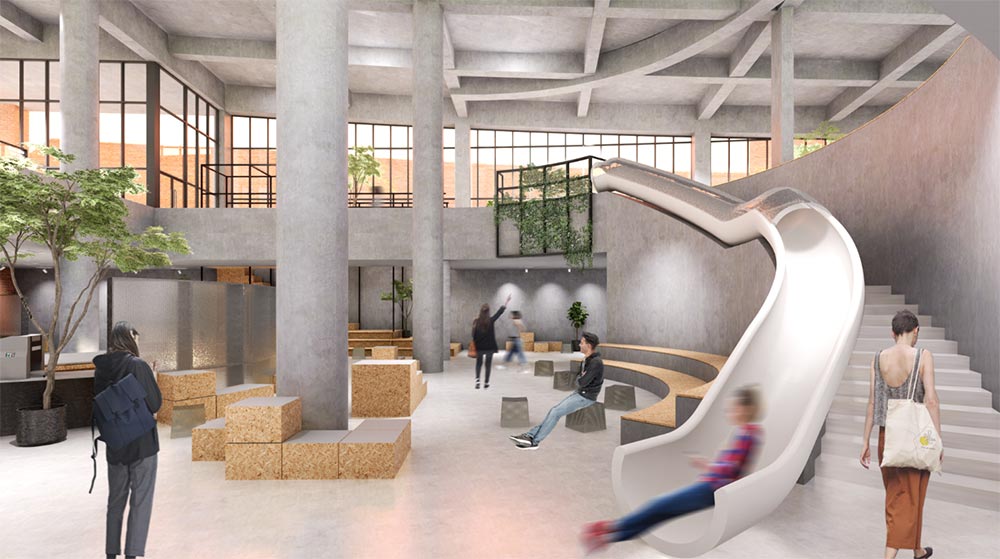
“I personally believe that projects from the SDG Lab will make an impact. We really would like to invite like-minded people to join us and make changes together, not only for Thammasat and AIS, but also for the world. Products innovated here should be designed for everyone, not just for the rich. It is a way to change the world. I believe that together, we can make this happen,” Prinya says.
UN offers praise, support
The United Nations’ Resident Coordinator in Thailand, Gita Sabharwa, recently visited the SDG Lab and expressed her appreciation for the facility’s establishment.
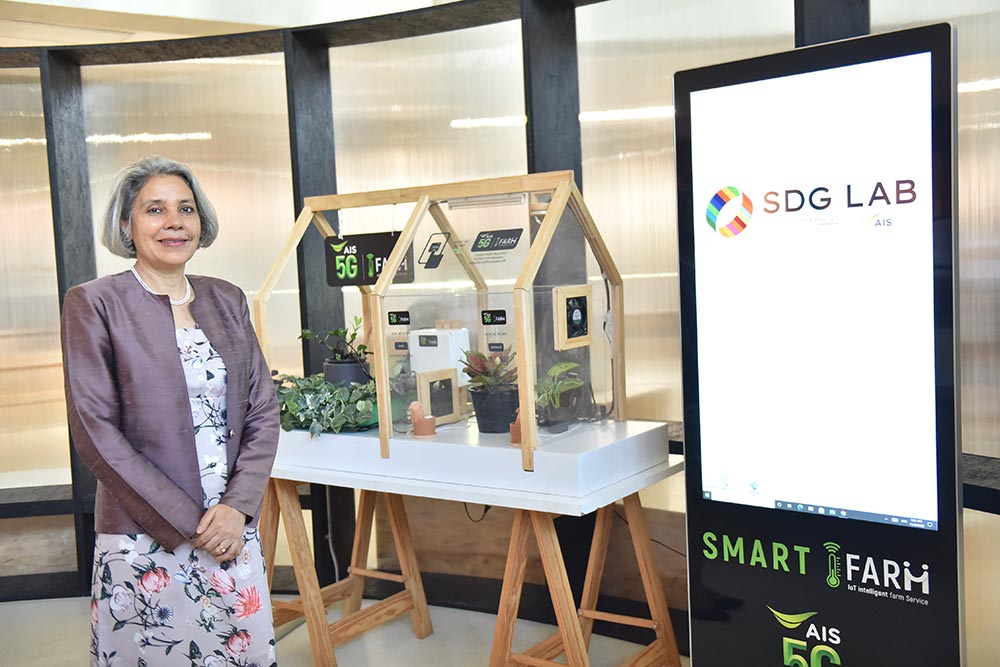
“It is great that two partners – one a private firm and the other a university – have collaborated in creating such an inspiring place. This lab is well-designed for the new generation to step in and explore solutions for existing challenges, including climate change. I am now looking forward to the success of SDG Lab and its prototypes,“ she said.
As a UN coordinator, Sabharwa said she would be looking into what support the UN could extend to the lab and how some of the lab’s prototypes could be brought to markets for the benefit of both Thailand and the world. “When I stepped on to the rooftop garden, I realized that it was really forward-looking. I trust that many other buildings will get rooftop gardens as well. With plants spreading over the roof, carbon-dioxide emissions will reduce. I really hope that what I’ve seen here has shown me what the future will look like,” Sabharwa said.



